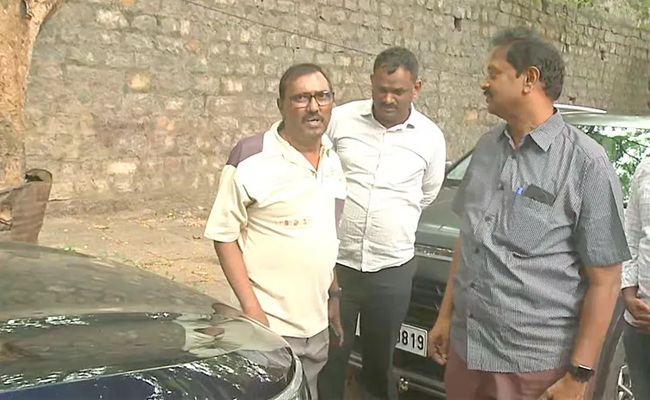Bail Granted to Journalist Kommineni Srinivasa Rao by Supreme Court
In a significant turn of events, senior journalist Kommineni Srinivasa Rao has recently been granted bail by the Supreme Court of India. This decision comes in light of the controversy surrounding his arrest after a televised debate on Sakshi TV.
The Controversial Comments
During the live debate, political analyst Krishnam Raju made remarks deemed objectionable regarding the women of Amaravati. Although Kommineni was merely the host of the show, he found himself entangled in legal troubles when the police arrested him, igniting public outrage and debate.
Details of the Arrest
Kommineni was arrested in Hyderabad and subsequently transported to Andhra Pradesh, where he has been held at the Guntur jail. This arrest has raised notable concerns regarding the application of the law and freedom of expression in the media landscape.
Legal Proceedings and Court Observations
Earlier, the Mangalagiri court had identified the booking of Kommineni under the SC/ST Atrocities Act as improper, ordering the removal of that charge from his case. Despite this ruling, he remained in custody, prompting his legal team to appeal to the Supreme Court for bail.
Supreme Court’s Comments on Freedom of Speech
During the bail hearing, the Supreme Court made pointed observations regarding the circumstances of Kommineni’s arrest. The judges posed a pivotal question: “Can you arrest Kommineni Srinivasa Rao just because he smiled?” Their remarks underscored the notion that smiles and facial expressions can occur even during serious court proceedings.
Implications for Democracy
The Supreme Court stressed the importance of protecting democracy and ensuring that freedom of speech remains intact. Their ruling serves as a reminder of the necessity for a balanced approach in dealing with controversial statements, particularly in the media.
Conclusion: Kommineni’s Release
In a decisive ruling, the Supreme Court granted bail to Kommineni Srinivasa Rao, instructing the police to facilitate his immediate release. This outcome marks a critical victory for the principles of journalistic freedom and the rights of individuals to express their opinions without fear of unjust repercussions.
